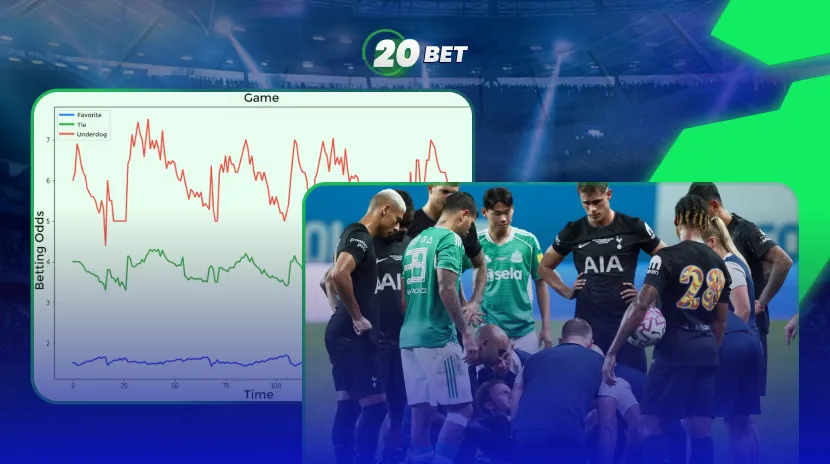If you’re into sports betting or even just curious about it, you’ve probably heard someone say, “You should hedge that bet.” But what does that actually mean? Is it a good idea? How much to hedge a bet? Don’t worry; we’re keeping this simple and accurate.
What Is Hedging in Betting
Hedging is like taking out insurance on your bet. It’s when you place a second wager to reduce the risk of losing your first one. The idea is to either lock in a profit or cut down your potential loss. Sure, you might give up some of the big winnings, but you’re making sure you don’t walk away empty-handed. It’s about keeping risk management in mind.
Here’s a quick example:
- Say you bet $100 on the Kansas City Chiefs to win the Super Bowl at +500 odds. If they win, you’re looking at $500 in profit.
- But now, they’re in the Super Bowl against the Philadelphia Eagles, and you’re sweating. What if the Eagles win?
- You can hedge by betting on the Eagles. For instance, you could put $200 on the Eagles at -110 odds. If the Eagles win, you’d get about $182 in profit from the hedge bet, which covers your original $100 bet on the Chiefs.
How to Hedge Bets
Let’s break down how to hedge step-by-step. It’s not as tricky as it might sound.
- Numbers and Hedge Calculator: Check how much you’ve bet, your potential winnings, and what odds you’re dealing with for the hedge bet. A hedge bet calculator can help if you want exact numbers, but rough math works, too.
- Decide Why You’re Hedging: Are you trying to lock in a guaranteed profit or just limit how much you might lose? Knowing your goal makes the next step easier.
- Place Your Hedge Bet: Find odds that work for your bet’s plan. For example, if you’re hedging a bet on the Chiefs, you’ll look for Eagles odds that cover your desired profit or loss.

Examples of Hedging a Bet
When I first heard about hedging, I thought, “Why bet against myself?” Turns out, it’s more like grabbing a seatbelt for your bets. Let’s break down a few real-life examples so it all makes sense (and maybe even save you some stress).
How to Hedge a Futures Bet
You placed a $50 bet on the Denver Nuggets to win the NBA Championship at +800 odds. Now they’ve made it to the Finals. You’re looking at $400 in profit if they win, but what if their star player gets injured mid-series? You could bet $200 on their opponent at +120 odds. If the Nuggets lose, you’ll still walk away with some cash.
How to Hedge a Parlay Bet
You’ve got a five-leg parlay, and the first four legs hit. The last leg is the underdog Green Bay Packers. Instead of sweating bullets, you hedge by betting on their opponent. With this approach, you’re walking away with a payout and minimizing risks.
How to Hedge a Single Game Bet in Live Betting
Say you bet $100 on the Lakers to win a game outright at +200 odds. The Lakers take an early lead, and the live odds for the other team are now +150. You could bet $100 on the opposing team live, ensuring a profit regardless of how the game ends.
Best Sports Betting Hedging Strategies
There’s no one-size-fits-all tactic, but here are some smart opportunities to hedge effectively:
Futures Bets
When your team gets deep into a tournament, hedging helps with long-shot wager protection. You can mitigate loss while still giving yourself a chance at a safe bet if things don’t go your way.
Parlays
The longer the parlay, the riskier it gets. Hedging the final leg can lock in a win.
Live Betting
The live betting market options let you adjust on the fly. If the game swings in one direction, you can use that to your advantage.
Using Free Bets or Bonuses to Hedge
Some sportsbooks offer free bets or bonuses. These can be great tools for secure hedging without risking extra money.
Advantages and Disadvantages of Hedging Bets
Hedging can save you from significant losses, but it’s not always perfect. It has its ups and downs. Before you try it, here’s a quick look at the good and the bad.
Benefits of Hedging a Bet
- Lock in Profit: Even if it’s smaller, profit is profit.
- Limit Your Loss: You can protect the wager by capping how much you lose if things go south.
- Reduce Risk and Stress: Sometimes, it’s just about peace of mind.
Risks and Downsides of Hedging
- Lower Profits: You’re giving up the chance of a full payout, which impacts your overall risk-reward balance.
- Overthinking: Hedging can be complicated if you overdo it.
- Extra Fees: Don’t forget the vig (commission) sportsbooks take.
When to Hedge a Bet and When Not To
The biggest mistake? Hedging too much. If you hedge away most of your potential winnings, you might as well not bet in the first place.
Common Mistakes to Avoid in Hedging a Bet
- Not Doing the Math: If your hedge bet doesn’t make sense financially, your adjustment could cost you more than it saves.
- Hedging Too Early: Sometimes, it’s better to wait until the odds shift more in your favor.
- Ignoring Fees: Always account for the sportsbook’s cut.
Conclusion
Hedging isn’t a magic button, but it’s a solid move when you’re nervous about losing it all. Think about that parlay you’ve almost nailed or the futures bet that’s this close to hitting. A small hedge can lock in some winnings or soften the blow if things go sideways. Just keep it simple, don’t overdo it, and remember: walking away with a little is way better than walking away with nothing.









